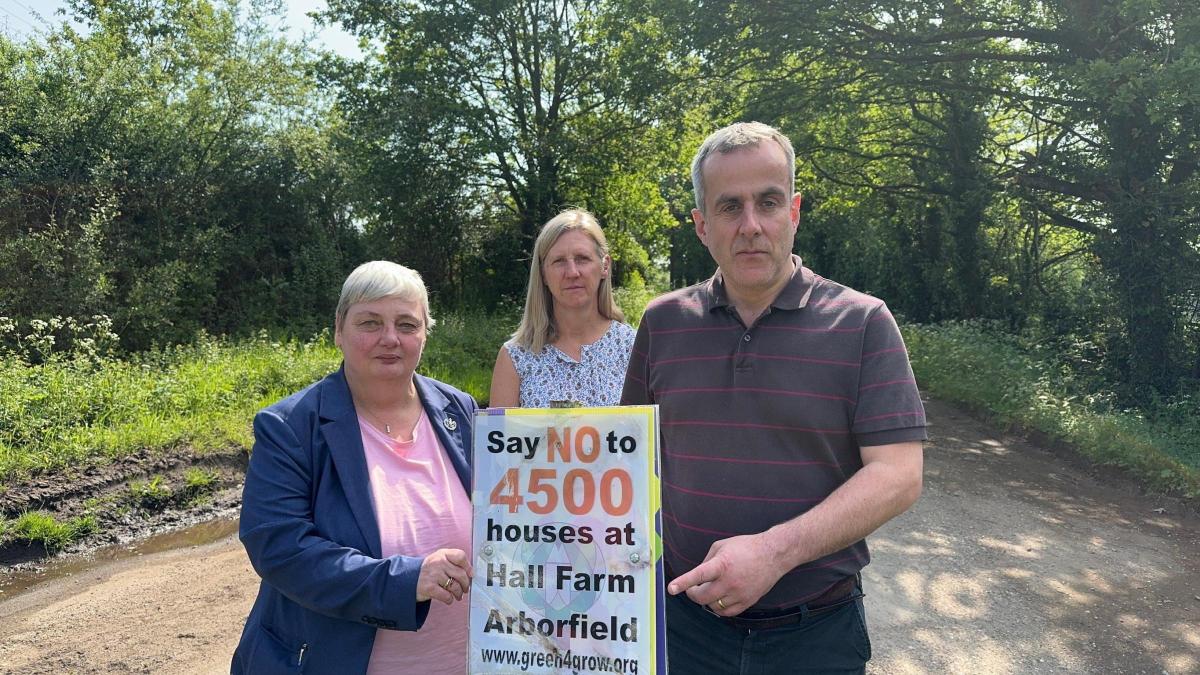From artisanal crepes to rebellious cheesecake waffles, Reading's breakfast rebels are transforming morning meals. These seven spots will revolutionize how you start your day.
In a development that has ignited fierce debate among local residents and political figures alike, the proposal for the construction of over 4,500 new homes on farmland south of the M4 motorway is facing significant opposition. The initial enthusiasm for the project seems to have waned, particularly among Conservative party members, who now appear increasingly critical of the plans.
A Project Divisive from the Start
The proposal to transform large tracts of agricultural land into a sprawling residential area was always going to be contentious. Supporters argued that the project would provide much-needed housing and boost the local economy through job creation and increased consumer spending. They highlighted modern design plans, sustainable building practices, and community amenities like parks and schools as integral parts of the development.
Local councils and planning committees initially showed support, envisioning a future where the new homes could alleviate pressure on the housing market. However, as discussions progressed, the cracks in this vision began to show.
Conservative Shift: Optimism Turns to Opposition

Source: https://www.readingchronicle.co.uk/news/24426005.clash-4-500-new-homes-farmland-south-m4/
The Conservative party's stance on the project appears to have undergone a significant shift. Originally proponents of growth and development, several Conservatives are now voicing their concerns. Among these issues are the potential loss of valuable farmland, increased traffic congestion, and the strain on local infrastructure.
Citing the importance of preserving rural landscapes and maintaining a balance between urban expansion and environmental conservation, Conservative leaders are now questioning whether this development aligns with long-term regional goals.
A senior Conservative council member spoke out, stating, "While we recognise the need for more housing, it cannot come at the expense of our countryside and quality of life. Infrastructure support must precede such large-scale projects."
Local Residents Speak Out
The reaction among local communities has been mixed. Some residents welcome the promise of new homes and the economic opportunities they might bring. Others, however, are deeply concerned about the transformation of farmland and its repercussions for the local environment and the farming community.
A local farmer expressed his fears, saying, "Our livelihood depends on this land. Turning it into a housing estate not only takes away our work but also the heritage that has been in our families for generations."
Environmental Concerns
Environmental groups have also joined the fray, emphasising the potential negative impact on local ecosystems. The proposed site hosts a variety of wildlife and serves as an important green belt. Activists argue that the development would disrupt habitats, increase pollution, and contribute to the urban sprawl that many have fought hard to control.
An environmental advocate commented, "This project is short-sighted. We must find ways to accommodate growth without sacrificing our natural resources and biodiversity."
Looking Ahead
As opposition mounts, the future of the proposed housing development remains uncertain. The clash over these 4,500 new homes underscores broader questions about how to balance the needs for housing, economic growth, and environmental stewardship.
Decisions made in the coming months will likely set important precedents for future developments in the region. It remains to be seen whether a compromise can be reached that satisfies the diverse stakeholders involved.
Stay tuned for further updates as we continue to follow this evolving story.